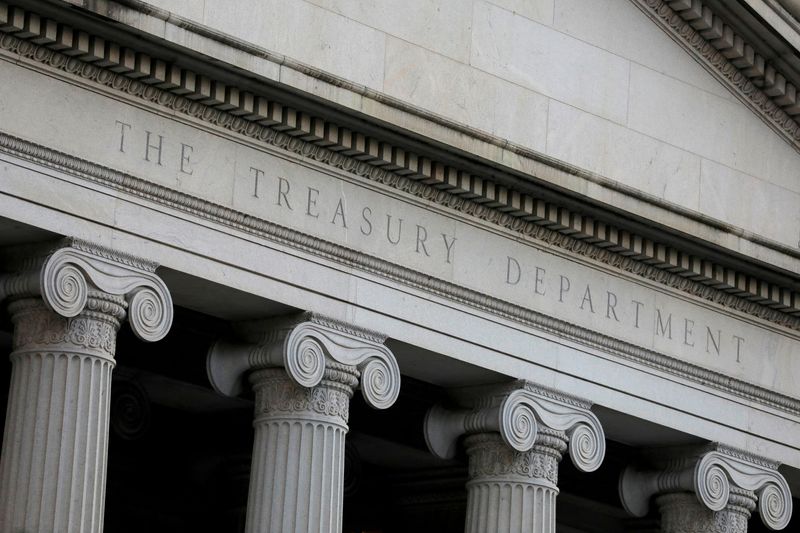U.S. says Switzerland exceeds currency thresholds, no manipulator tag

© Reuters. FILE PHOTO: The United States Department of the Treasury is seen in Washington, D.C., U.S., August 30, 2020. REUTERS/Andrew Kelly
WASHINGTON (Reuters) -The U.S. Treasury Department on Friday said Switzerland continued to exceed its thresholds for possible currency manipulation under a 2015 U.S. trade law, but refrained from branding it – or any other country – a currency manipulator.
The Treasury said it would continue an enhanced bilateral engagement with Switzerland that began in early 2021 to discuss Swiss authorities’ options to address the underlying causes of its external imbalances.
A senior Treasury official said those talks were going well, and Switzerland faced some unique challenges that affected its current account balance, including occasional safe haven inflows, such as at the start of Russia’s war against Ukraine.
Vietnam and Taiwan also continued to exceed some thresholds for possible currency manipulation, Treasury said in its semi-annual report, saying that it would continue an in-depth analysis of their exchange rate policies.
The report concluded that no major trading partner manipulated its exchange rate with the U.S. dollar for purposes of preventing effective balance of payments adjustments or gaining unfair competitive advantage in international trade.
But it said it remained concerned about certain economies raising the scale and persistence of foreign exchange intervention to resist appreciation of their currencies in line with economic fundamentals, and continue to press surplus countries to take steps to boost domestic demand.
“The administration continues to strongly advocate for our major trading partners to carefully calibrate policy tools to support a strong and sustainable global recovery,” Treasury Secretary Janet Yellen said in a statement released with the report. “An uneven global recovery is not a resilient recovery. It intensifies inequality, exacerbates global imbalances, and heightens risks to the global economy.”
Treasury put twelve major trading partners on its “Monitoring List” for currency practices and macroeconomic policies: China, Japan, South Korea, Germany, Italy, India, Malaysia, Singapore, Thailand, Taiwan, Vietnam, and Mexico.
All except Taiwan and Vietnam – which were subject to enhanced engagement – were on the list in the Treasury’s December 2021 report.
The report was issued within hours of Japan’s government and central bank issuing a joint statement flagging their concern about recent sharp falls in the yen, the strongest warning yet that Tokyo could intervene to support its currency.
The Treasury report took note of the sharp drop in Japan’s yen so far in 2022, saying it was largely due to interest rate differentials arising from the Bank of Japan’s continued accommodative monetary policy stance.
The report continued to voice concerns about China’s failure to publish foreign exchange intervention data and a broader lack of transparency about its exchange rate…
Read More: U.S. says Switzerland exceeds currency thresholds, no manipulator tag
